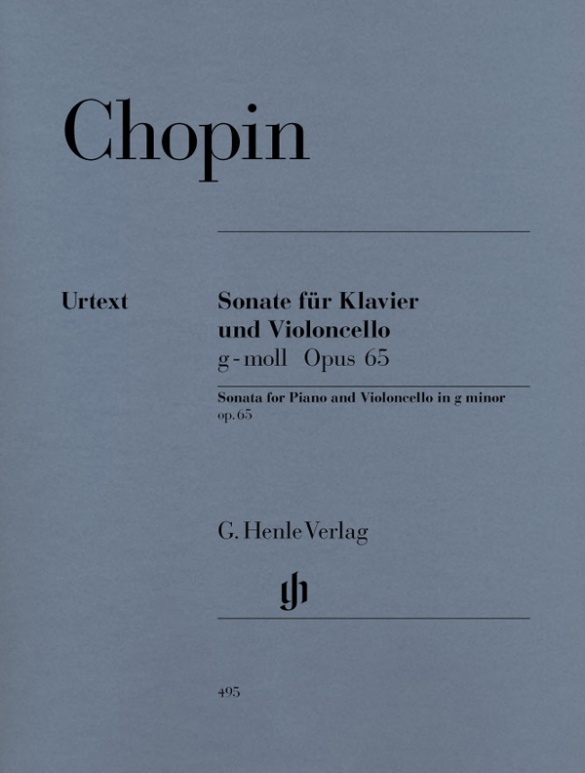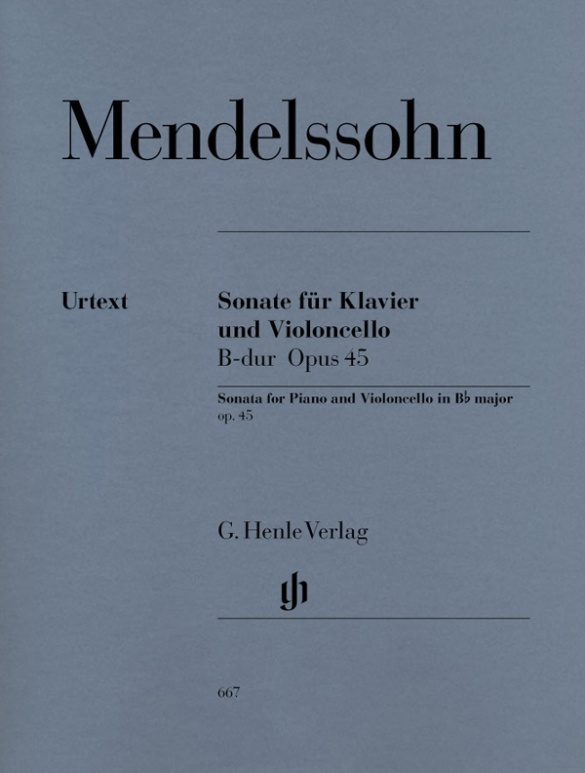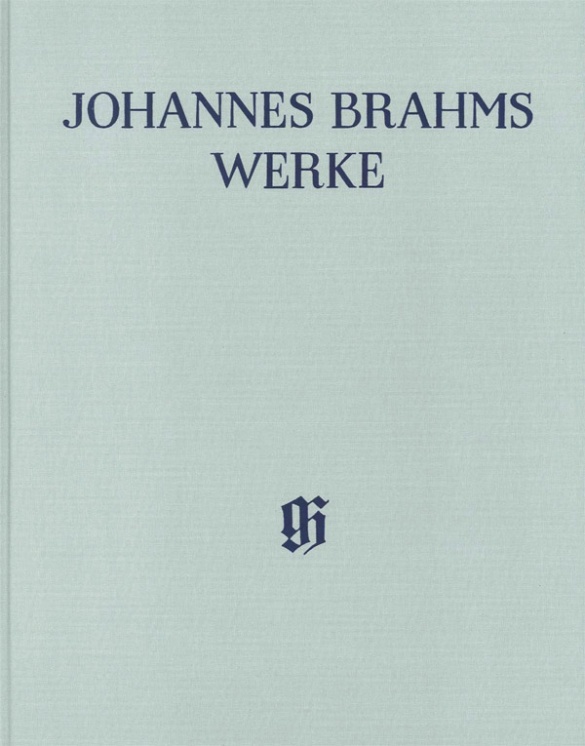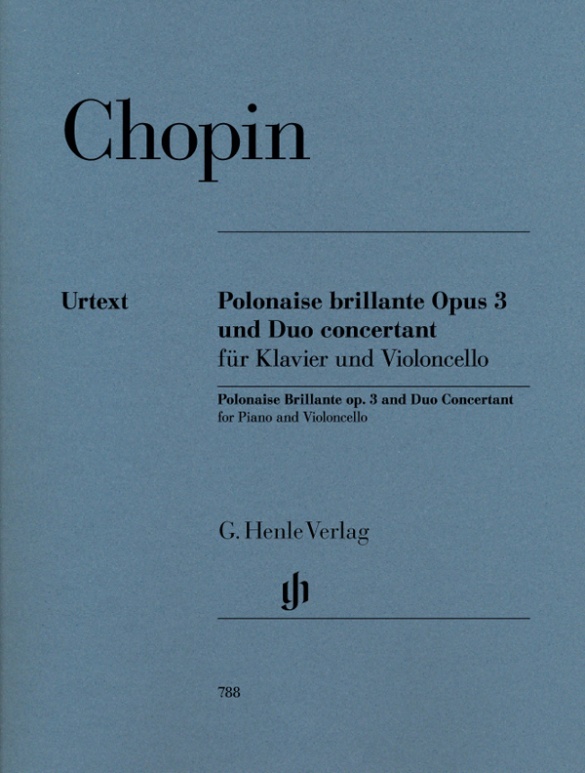

Frédéric Chopin
Polonaise brillante op. 3 et Duo concertant pour piano et violoncelle
Influencé par son ami le grand violoncelliste Auguste Franchomme, Chopin composa plusieurs œuvres pour violoncelle, parmi lesquelles en particulier le «Grand Duo concertant», paraphrase de l’opéra «Robert le Diable» de Meyerbeer. Son ami fut même associé à la mise au point de la partie de violoncelle. La polonaise op. 3 quant à elle, avec son introduction lente, a été écrite par le jeune Chopin pour le prince polonais Radziwiłł qui jouait du violoncelle. Au piano, Chopin sous-tend la mélodie chantante du violoncelle par un feu d’artifice pianistique brillant. Une œuvre de jeunesse de Chopin, magistrale, fulgurante et bourrée d’énergie.
CONTENU/DÉTAILS
(Explanation)
CONCERNANT LE COMPOSITEUR
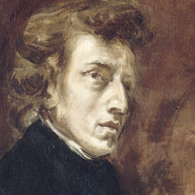
Frédéric Chopin
Pianiste et compositeur. Son œuvre, centrée sur la musique de piano, jouit d’une extraordinaire popularité et fait désormais partie intégrante du répertoire de concert. Sa musique a influencé les générations futures de compositeurs français (Franck, Saint-Saëns, Fauré, Debussy), mais aussi Smetana, Dvořák, Balakirev, Grieg, Albéniz.
| 1810 | Né le 1er mars à Želazowa Wola près de Varsovie. Premières compositions à l’âge de 7 ans. Première audition publique à l’âge de 8 ans. |
| 1822 | Cours privés de composition. |
| 1825 | Publication d’une première œuvre, le Rondo en Ut mineur op. 1. |
| 1826–29 | Études à l’École supérieure de musique à Varsovie. |
| 1829 | «Fantaisie sur des airs nationaux polonais» en La majeur op. 13, Trio avec piano en Sol mineur op. 8. Voyage à Vienne où il donne deux académies avec ses compositions et des improvisations. |
| 1829–33 et 1835–37 | Les Études op. 10 et op. 25 s’imposent comme un nouveau type d’étude virtuose à ambition esthétique. |
| 1830 | Création de ses deux Concertos pour piano en Fa mineur op. 21 et Mi mineur op. 11 à Varsovie. |
| 1831 | Ne pouvant retourner à Varsovie en raison de l’insurrection polonaise, il se rend à Paris où il demeure jusqu’à la fin de sa vie. |
| 1832 | Concert inaugural à Paris avec un grand succès. |
| 1835/38 | «Trois valses brillantes» op. 34. |
| 1836/39 | «24 Préludes» op. 28: une série de brèves pièces densément structurées et à déroulement cyclique. |
| 1835/39 | Sonate pour piano en Si bémol mineur op. 35 avec la Marche funèbre. |
| 1842/43 | Ballade n° 4 en Fa mineur op. 52, «Grande Polonaise brillante» en La bémol majeur op. 53, Scherzo n° 4 en Mi majeur op. 54. |
| 1833 | Sonate pour piano en Si mineur op. 58. |
| 1849 | Achèvement des Mazurkas en Sol mineur et Fa mineur. Meurt le 17 octobre à Paris. |
About the Authors
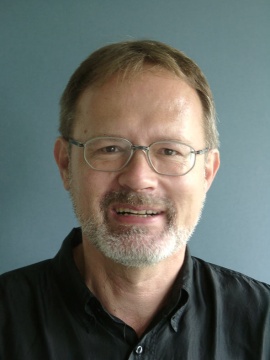
Ernst-Günter Heinemann (Editeur)
Dr. Ernst-Günter Heinemann, born in 1945 in Bad Marienberg (Westerwald), completed his schooling in Gießen and read musicology, philosophy and German in Marburg and Frankfurt/Main and also for some time Protestant church music. He did his doctorate on “Franz Liszts geistliche Musik. Zum Konflikt von Kunst und Engagement”.
From 1978–2010 Heinemann worked as an editor at G. Henle Publishers (in 1978 in Duisburg, from 1979 onwards in Munich). He edited a great many Urtext editions for the publishing house, including “Das Wohltemperierte Klavier”, Volume 1 by Bach and all of Debussy’s piano works. In addition, he wrote essays on Debussy, Grieg, Liszt, Mendelssohn and questions concerning general editing, as well as giving seminars on editorial practice for musicology students in Munich.
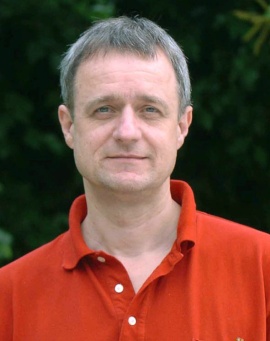
Andreas Groethuysen (Doigtés)
Prof. Andreas Groethuysen, born in 1956 in Munich, studied music with Ludwig Hoffmann in Munich and, on a scholarship from the “Studienstiftung des Deutschen Volkes”, with Peter Feuchtwanger in London.
After several years as a soloist, Groethuysen formed a piano duo with Yaara Tal, which has now become the focus of his artistic work. The duo regularly performs in many European countries, in Israel, China, North and South America. In exclusive cooperation with SONY CLASSICAL the internationally acclaimed piano duo has released a great many CDs – 28 to date – almost all of which have been awarded prizes.
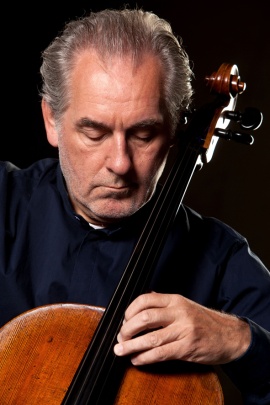
Claus Kanngiesser (Doigtés violoncelle)
Informations sur la sécurité du produit

G. Henle Verlag
Vous trouverez ici des informations sur le fabricant du produit.G. Henle Verlag e.K.
Forstenrieder Allee 122
81476 München
Allemagne
info@henle.de
www.henle.com
Once again Henle are to be applauded for their initiative, this time in bringing before the public an edition of two early and neglected works for piano and cello by Chopin. … Henle, though, have now made their own admirable contribution in helping to redress a regrettable situation.
Music Teacher Australien, 2007Es war also Zeit für textkritische Neuausgaben, und die hat der Henle-Verlag für die Sonate 1997 und für die Polonaise nebst dem Duo concertant 2006 besorgt.
ESTA-Nachrichten, 2007Molto importante è l’Apparato critico, per le numerose varianti e versioni che hanno interessato in modo speciale la parte del “solista“.
Suonare, 2007Die von Ernst-Günter Heinemann vorgelegte Ausgabe stellt die historisch-kritischen Verhältnisse wieder her und bietet unter unzähligen Herausgeberzutaten der letzten Jahrhunderte beinahe verschwundenen Urtext.
Ensemble, 2006recommandations
autogenerated_cross_selling
Autres éditions de ce titre
Autres éditions de ce titre


